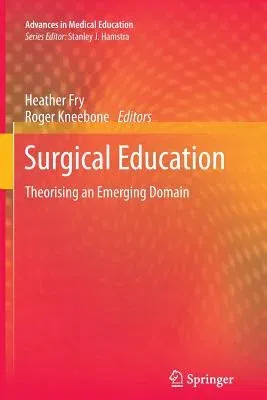Surgical Education: Theorising an Emerging Domain delineates surgical
(as opposed to medical) education as a new and emerging field of
academic enquiry. This reflects profound changes in healthcare training
and practice on an international basis. As such, this book introduces,
examines and explores the contribution of selected concepts and theories
to surgical learning and practice. The first four chapters consider core
facets of surgical education, such as simulation, while subsequent
chapters take a key idea, often well known in another field, and examine
its relevance to surgical education.
Of course, performing invasive procedures is no longer the exclusive
preserve of 'traditional' surgeons. Boundaries between surgery and the
interventional specialties (radiology, cardiology, intensive care) are
becoming increasingly blurred, especially as technology continues to
expand. Changing work patterns and explosive technological development
mark this out as a major growth area. New educational approaches (e.g.
the use of simulation) are emerging. And all clinical practice is a team
activity, where clinicians from many specialties (medicine, nursing,
allied professions) come together with shared goals. For all the above
groups, and their patients, education (teaching, training, learning and
assessment) is of crucial importance.
Yet the unique characteristics of surgical education have not previously
been addressed from an educational perspective, nor have its
possibilities as a new research domain been mapped. The domain needs to
be theorised and its epistemological foundations established. There is
thus both a need and a market for a definitive work in this area, aimed
at surgeons, other clinicians, non-clinicians, educators, and others
interested in this new domain.


